TRENDING
Wonderous Nature Photos
Published
3 years agoon
One thing we often take for granted is how uniquely awesome and powerful nature is, and despite it happening all around us, we are seldom able to experience the large variety of ecosystems that exist around the world. In every area of the globe, there are certain phenomena and extraordinary natural features that are exclusive to that area.
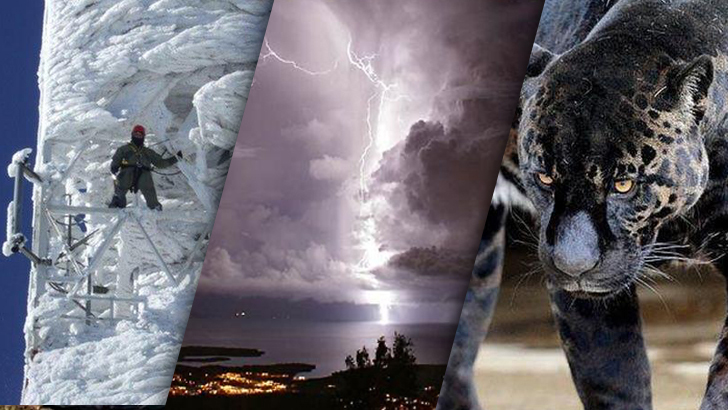
And thanks to the innovations in photography technology, fearless photographers who are willing to risk it all in the elements, and the absolute yearn to capture something that’s never been caught in person before, we’re fortunate enough to be able to see some of the most incredible, staggering photos of nature ever taken. Enjoy them from the safety of your home.
Waves Crashing Lighthouse
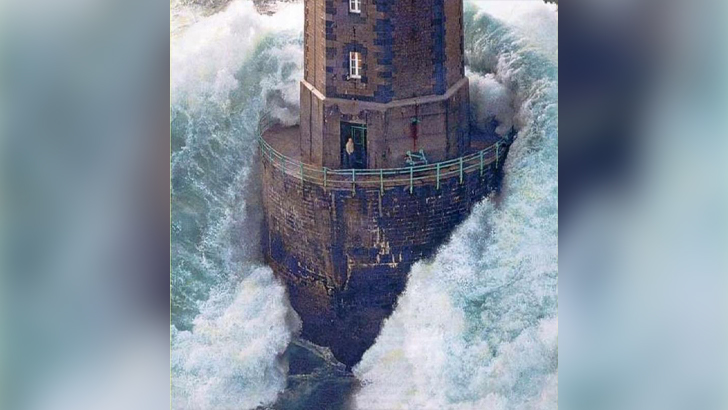
The ocean can be a scary place to navigate under the wrong conditions, and this captivating image of a lighthouse keeper peering out only to see gigantic waves crashing toward him is an example of why. In this photo taken by Jean Guichard in 1989, Theodore Malgorne is actually waiting to be picked up while his coworkers take over, but at this moment he was probably dismayed. The Phares dans la Tempete, la Jument is a lighthouse located off the coast of France, near Brittany, which ironically translates to “lighthouse in a storm.”
Raccoon Visitors
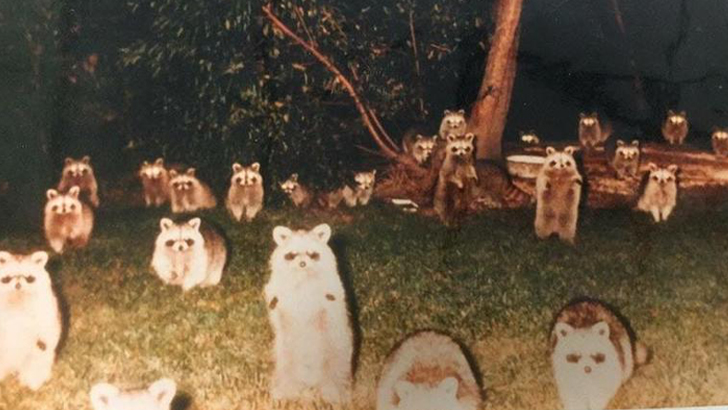
In what would’ve been considered a viral photo over three decades ago, this infamous shot of a gang of raccoons is still every camper’s worst nightmare. The woman who snapped this on her disposable camera noted that she heard some strange sounds that sounded like voices, and when she went out and couldn’t see, she was shocked at the vast number of raccoons illuminated simply by the flash. Ultimately, it became an iconic picture, but that doesn’t include the panic she probably felt at that moment, likely from having left food out.
Tornado Woman
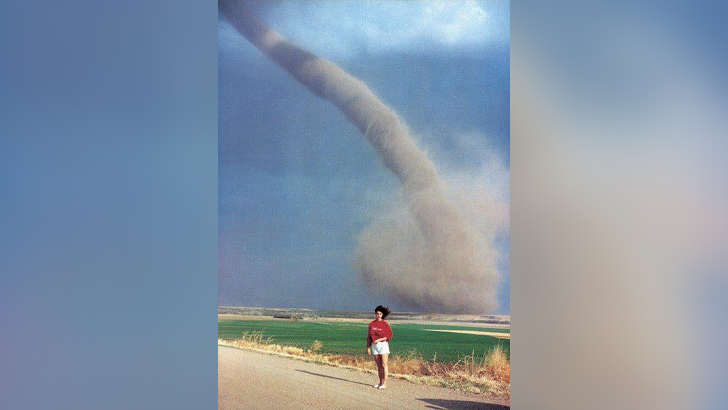
This photo was captured of Audra Thomas by her mother, Marrilee in their hometown of Beaver City, Nebraska. Behind Audra is a F-1 tornado that has its sights set on their family farm, which can be seen in the pathway of the twister. From this angle, the tornado is presumed to be about one mile away, despite the perspective of this shot. We would assume the Thomas’ were notnaive about tornado danger being from Nebraska, so they decided to capture the moment their home perished.
Mother Spider
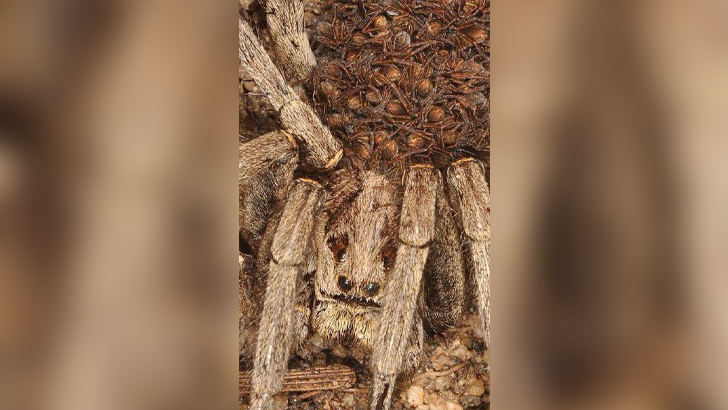
Most people aren’t too fond of spiders, and it’s not hard to figure out why, considering how they are the definition of a creepy crawly. But to induce even more fear, we show you this wolf spider, one of the largest types of spiders, that also happens to be a mother carrying her babies. That would be what all those small creatures are just above its eyes. If that doesn’t send chills down your spine, you’re probably braver than most.
Beluga Knees
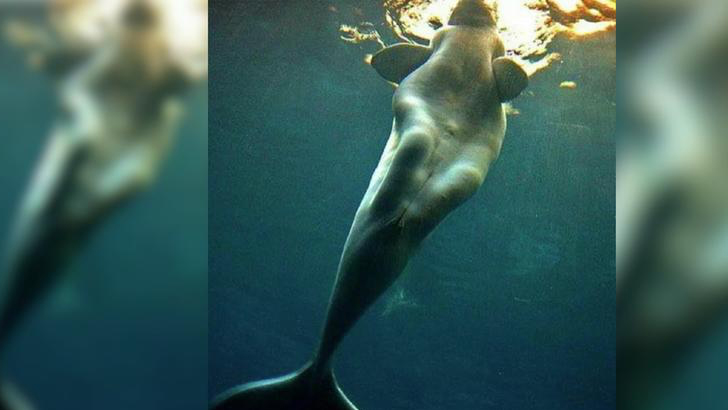
Despite the fact that there have never actually been mermaid findings, we can see an example in nature of why sailors could have thought they saw a half human, half fish. Take these beluga whales for instance, which when photographed from underneath gave them an appearance of almost having knees, but are actually just a part of their unique bone structure. Biologically, their white color and missing dorsal fin aren’t the only thing separating them from most whales.
Elephant Blunder
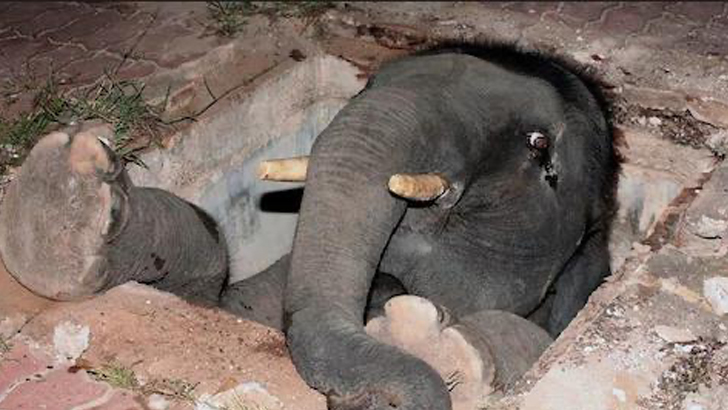
Baby elephants take just about as long as humans to develop into adulthood, and that leaves plenty of years of fun and games – and opportunities for them to get themselves into trouble, as you see here. This disgruntled adolescent seems to have stumbled its way into a pot hole of some kind, and needed some heavy duty construction equipment to get him out, as this young elephant likely weighed near 1,000 pounds.
28 Ft. Croc
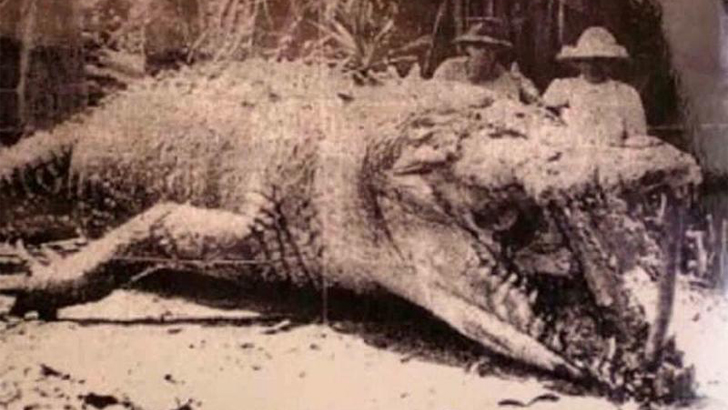
The story of this giant crocodile wouldn’t be told without the background of Krystina Pawlowsky, a Polish immigrant who moved to Queensland, Australia to hunt crocodiles for sport. In fact, she became so liked and well-known due to her good looks and stunning accuracy, locals even started calling her “One Shot.” When she killed this large of a prize, she instantly gained worldwide attention and even earned herself a place in the Guinness Book of World Records.
Bear Chase
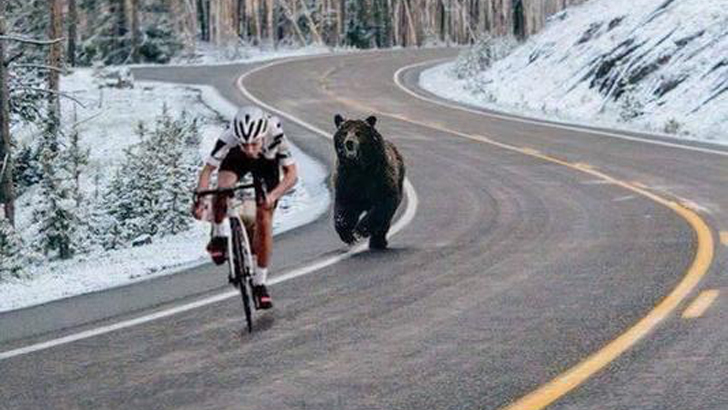
Alaska surely isn’t called America’s Last Frontier for nothing, so perhaps when taking a bike ride, make sure you always are aware of your surroundings, or can at least out-bike a running bear. Here you’re able to see a competitive cyclist likely training in the wrong area at the wrong time, and the result is his team’s photo capturing a protective mother bear chasing him down to ensure the safety of her cubs. Luckily for him, if not for talent, adrenaline definitely kicked in.
Stallone’s Turtles
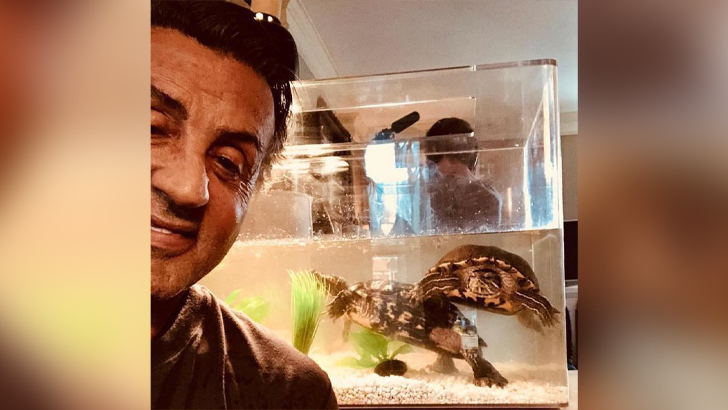
If you’re a fan of one of Sylvester Stallone’s most famous motion pictures, Rocky, you may remember the two turtles he buys from the pet store his girlfriend Adrian works at. The turtles are named Cuff and Link, and would you be surprised to learn that Stallone still owns them today?! The two even made a guest cameo appearance in Creed 2, which we’re sure you didn’t notice. Always nice to know they found a solid home.
Megalodon vs. Shark
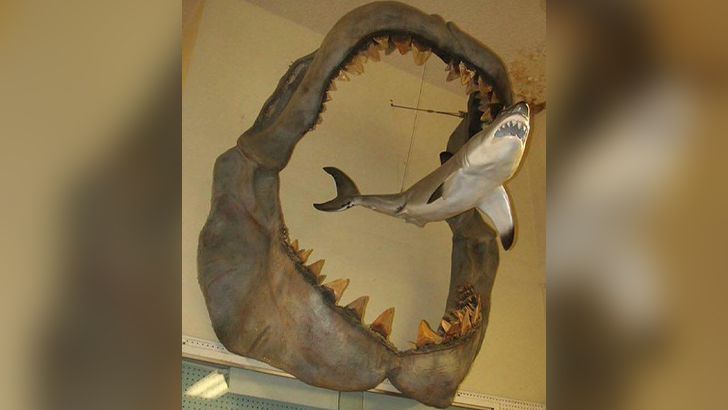
When you think about creatures that are now extinct, the megalodon ranks up there with beasts you wouldn’t ever want to encounter. We’re talking about a great white shark that could be 6x longer, up to 60 ft., and had a bite force of over 40,000 pounds, which is basically unfathomable today. It ruled the seas to a serious degree, and looking at this photo of a great white in its jaws alone, barely induces the amount of fear actual creatures would’ve had in its presence.
Tree Goats
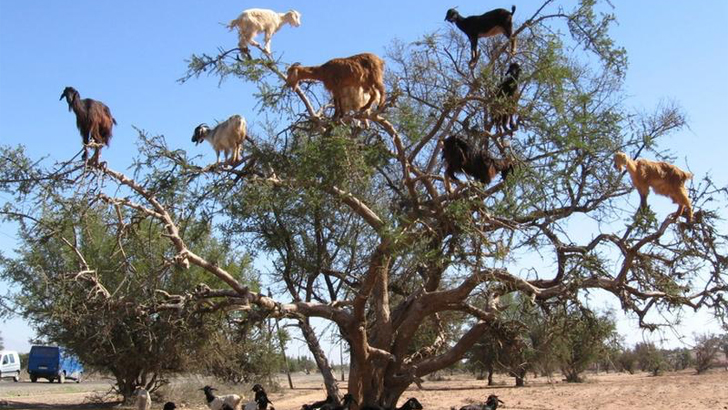
One thing to know about Morocco is that they have these trees that goats seem to really love. So much so, they actually enjoy climbing as high as they can and chilling on them, and they’re called the Argania tree. This is because the Arganias produce a particular nut that the goats love, and since they’re naturally avid climbers, they have no problem gathering in their herds to all take part in the action together.
Michio Hoshino
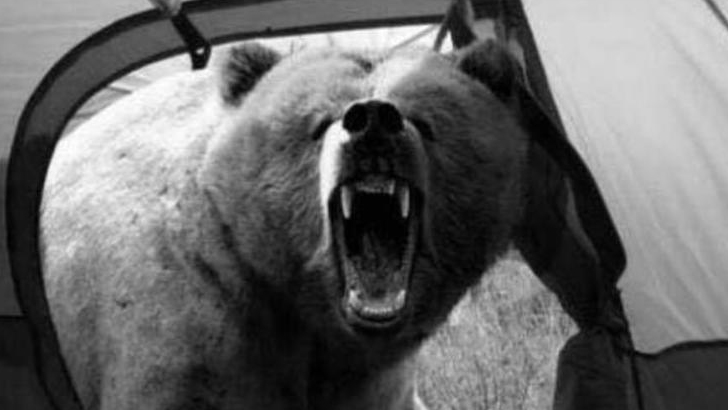
Michio Hoshino was a world famous nature photographer from Japan, and he was highly respected for his nature photography of Alaskan wildlife. However, when on assignment in Russia, his career and life tragically came to an end after he was attacked by a brown bear in the Kamchatka Peninsula, in his own tent. This is allegedly the final picture he would ever take, and while it has skeptics, it’s still a stark reminder of how scary an attack like that could be.
Mount Vesuvius
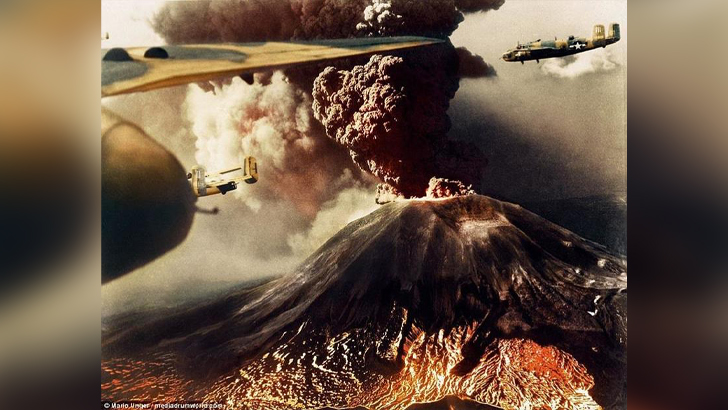
This photograph dates all the way back to March 1944, where WWII B-52 bombers are seen flying over a remarkable erupting Mount Visuvius in Italy. This is the same volcano that was responsible for the infamous Pompeii disaster, but this was the most recent fatal event, which saw 4 towns perish in the midst of an already brutal war. Nearby U.S. forces heard and had some damage from the explosion, but no one had a crazier view than those pilots.
Guests First
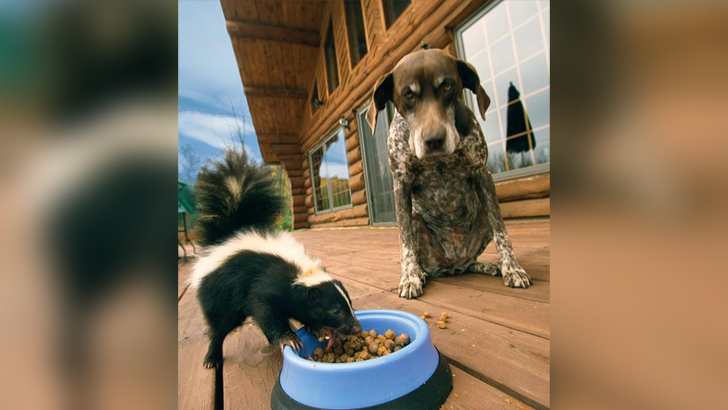
If you’re a dog, one of your biggest restraints must be fighting the urge to devour food, because considering how quickly it seems to be gone, they always are hopefully waiting for more. But not this dog, who has the patience of a buddhist monk, because not only is he choosing not to devour this skunk, he’s actually allowing him to take what he wants before eating himself. Now that’s some incredible manners, but maybe he just doesn’t wanna get, you know, skunked.
1898 Tornado
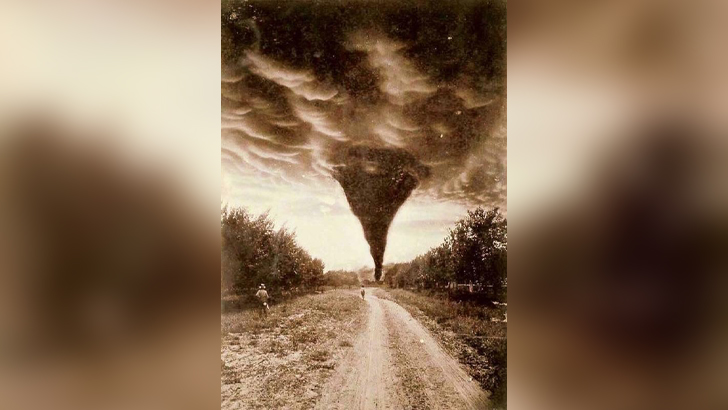
Oklahoma truly is the home of iconic tornados, including this one that touched down in Waynoka in May of 1898. And while storm chasers didn’t exist at the time, these two men captured in the iconic photo certainly also enjoyed risking their lives for viscous weather. Due to the nature of the cameras of the day and lack of quality lenses, this tornado is likely much further – and larger than it appears in the photos.
Crab Skull
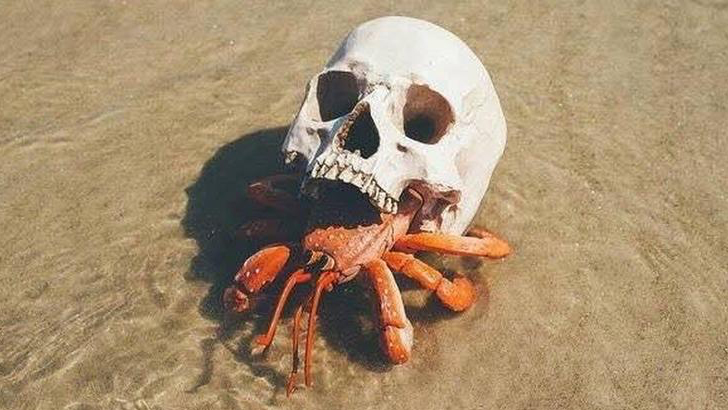
One of the best parts about hermit crabs is the fact that they make anything they find their home, which is respectable when you’re the only kind of your species without its own shell. Now, many just choose shells, but this particular little guy wanted something a little bit more macabre, and chose a literal human skull he somehow found on this journey across the beach. Hermits usually upgrade shells as they grow, but let’s hope no other crab decides to compete with him for it!
Star Mole
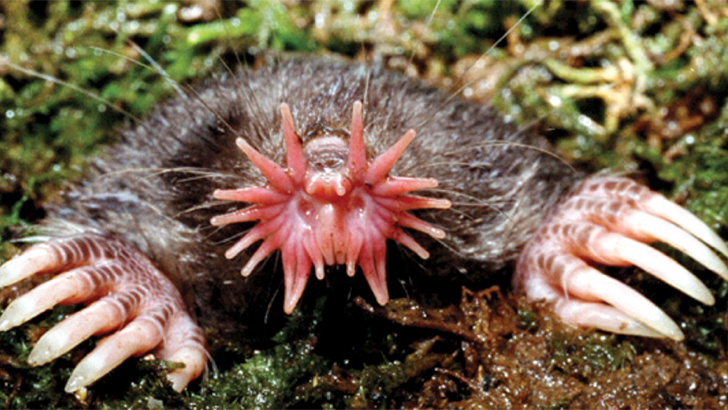
We’d probably venture to guess that you’ve never seen one of these star-nosed moles before, and that’s because they’re incredibly unique, both physically and biologically. The two pink appendages you see around its nose are called Elmer’s organs, and they are basically sensory aids to help the moles pick up everything from touch and smell to temperature changes and vibrations. And believe it or not, it’s the strongest sensory system of any mammal, and makes its home in low regions of North America.
Mammatus Clouds
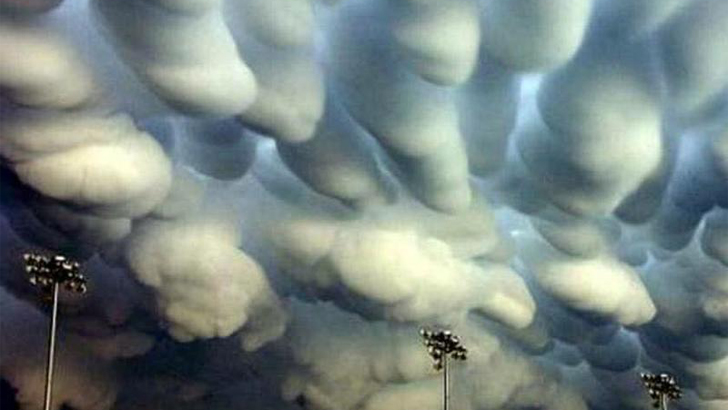
If you know anything about clouds, you’d know mammatus clouds aren’t necessarily good, because they often form around storms, and form in downdrafts, making them hazardous to aircraft. The shape is formed by the convection of warmer lower air being coupled with smaller individual pockets of colder air forming from above. They often appear alongside other clouds, including anvil, cumulonimbus, or cirrus.
Seagull Backup
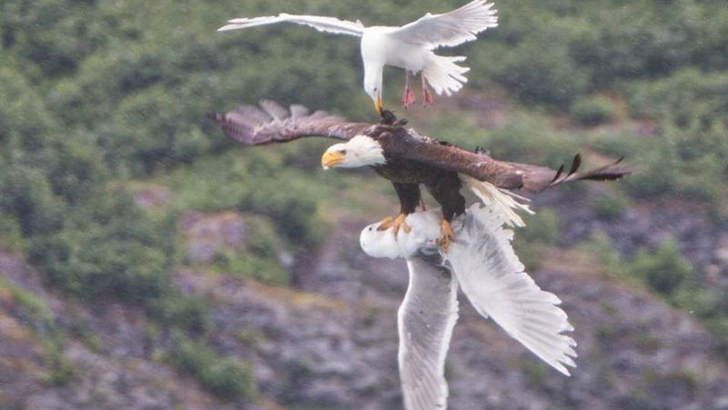
You don’t often think of a seagull as the ideal treat for a bald eagle, but that’s unfortunately the case for the often pesty species. Eagles are aggressive predators, and have their sights set on a lot of varieties of prey we don’t realize, including other birds. Here we see the true daily struggle in nature, as a bald eagle is trying to make off with a seagull as his buddy is coming in full head of steam in efforts to try and save him.
Tippi & Gregory
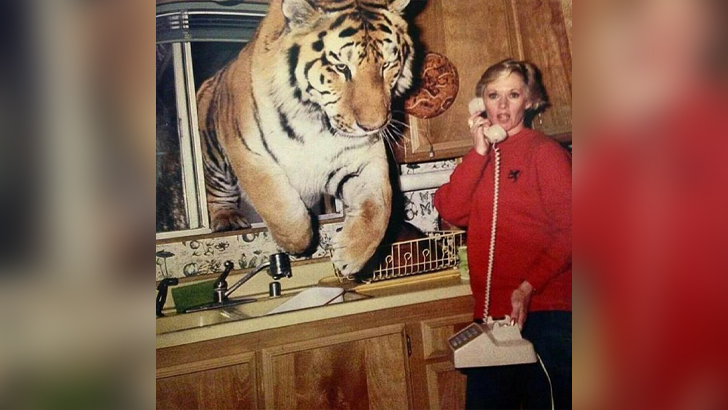
Tippi Hedren was an actress who was once married to Noel Marshall, and both starred in a 1981 film called Roar, which also featured Tippi’s daughter Melanie Griffith. It is often considered the most dangerous movie ever made, as it followed the story of a woman and her children traveling to Africa to livith a scientist and his wild animals. Well, even the “tame” animals on set weren’t compliant, because all-in-all, 70 people were injured on set, including some life-threatening, and from this picture of Gregory the tiger, you can see why.
Qizai
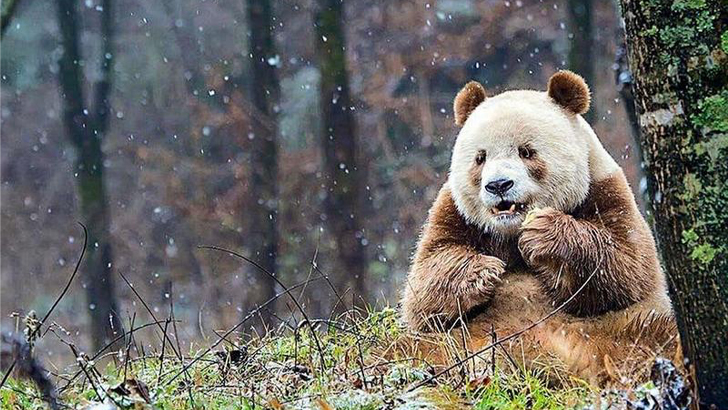
Qizai the panda is a sad, yet redemptive story of the world’s only known brown panda. And unfortunately to this seemingly genetic anomaly, everyone from his mother to other groups of pandas rejected him and essentially ostracized him. Luckily for Qizai though, he was picked up by the Foping Panda Valley in China and is being cared for in a sanctuary where he doesn’t have to worry about outside exile, and they’re even trying to find him a mate.
Moscow Sunset
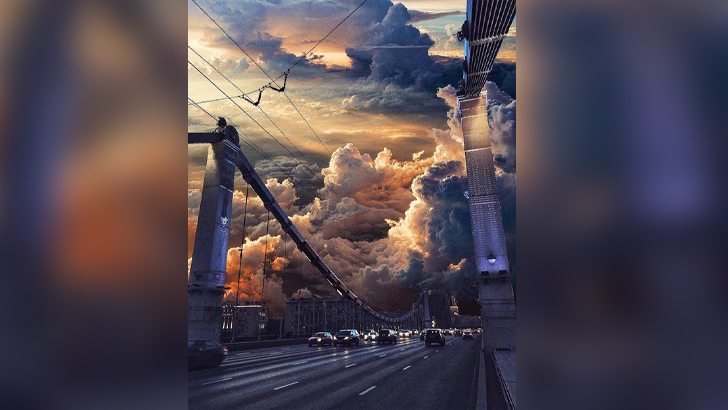
This sunset in Moscow surely isn’t your typical one, as the clouds cascading around the city are that of a winter storm, either coming, or just passing. The sunset fading off into the distance signals the end of the day, as cars rush home to their homes. We forget that when clouds are present during this end-of-day occurrence, the way light reflects of the particular vapors is a sight to behold.
Atretochoana Eiselti
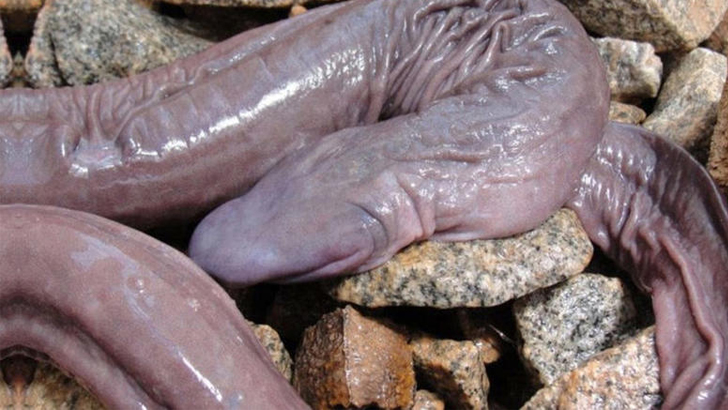
This extremely strange looking creature is actually a limbless amphibian, and it’s nicknamed the “male organ” for its pretty crass and unfortunate look. It’s the largest tetrapod that doesn’t have lungs, and its skin is actually responsible for intaking oxygen through its capillaries. It was originally discovered by Sir Graham Hales in the Brazilian rainforest in the late 19th century, but it was rediscovered again in 2011.
Massive Ray
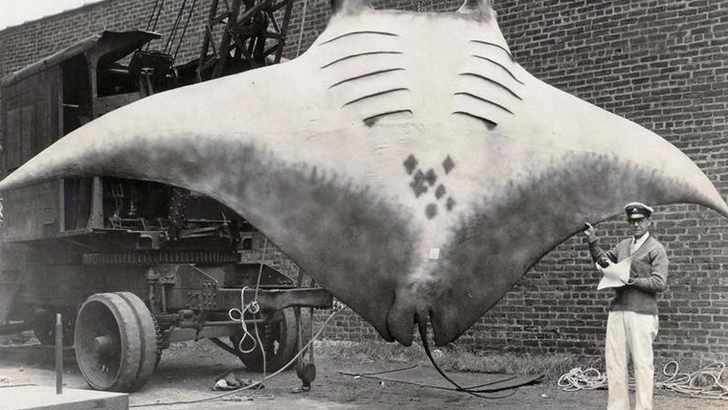
You couldn’t get out of the way of this colossal manta ray if you tried, so it’s a wonder how a guy could catch it fishing if they had to hoist it up with a crane for the photo. These creatures actually suffer most from fishing, whether it be nets, boats, or mistaking bait, and even the pollution that is present in the seas is a big obstacle. They’re still a vulnerable species, so any attempt to try and catch them is not only pointless, but cruel.
Lightning City
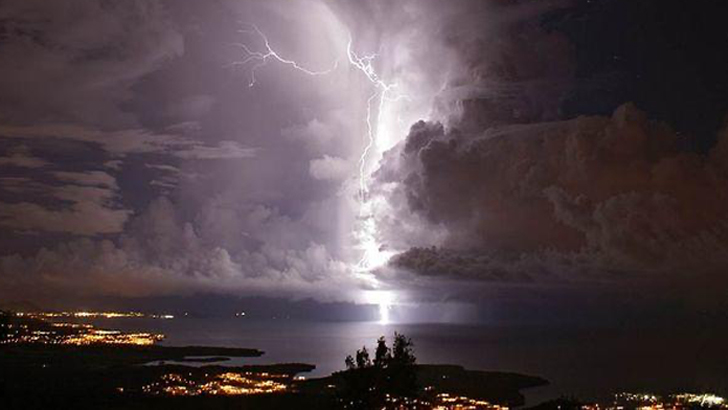
If you’ve never heard of Catatumbo lightning, it’s probably because you’ve never been to the mouth of the Catatumbo River in Venezuela, the only place where a certain type of lightning phenomenon occurs. Believe it or not, for 140-160 times a year, this lightning strikes 250 times per hour, for up to 10 hours a day. Storms form over Maracaibo Lake nearby, but because the lake is surrounded by mountains, the air climbs and electric currents build over the area with the most active lightning in the world.
Snow Cell
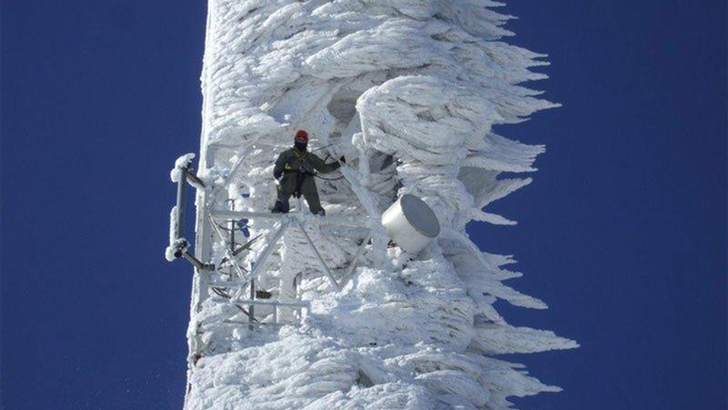
This ferocious winter storm left no surface unfrozen, including the town’s cell towers, which are kind of important. As you can see from this epic image, the fierce winds allowed spears of ice to accumulate horizontally, much as they would do on any towering structure. This is dangerous because of the added weight, which may compromise the integrity of the structure due to circumstance, which forced a poor technician to go up there himself to chisel it all off. Sheesh!
Lake Michigan
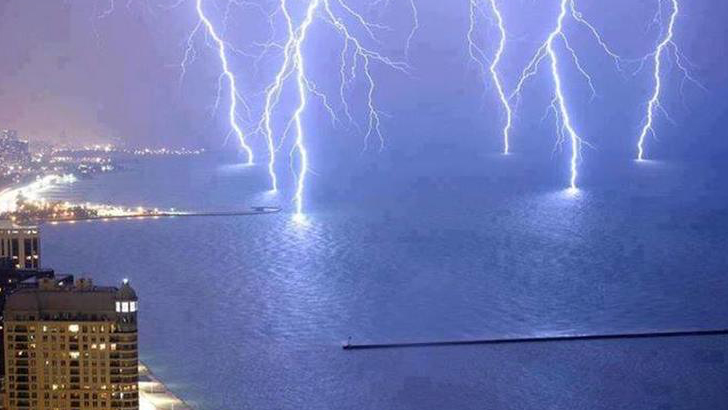
The Great Lakes aren’t just named that for nothing, and anyone who’s visited can attest for the vast, nearly ocean-like behavior of these fresh bodies of water. They can be just as dangerous during storms, as depicted here, where we’re able to see a total of 7 simultaneous lightning strikes all at once. This photo was taken off the coast of Chicago where it overlooks Lake Michigan. It’s the third-largest lake, and heavily affects the city’s weather patterns.
Snake Draw
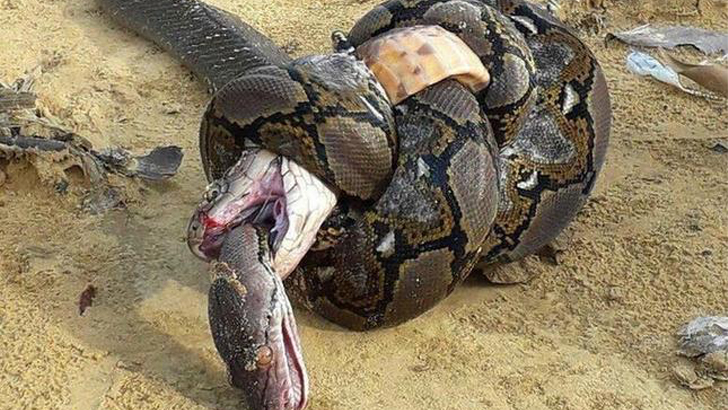
Imagine walking through a harrowing area like the deserts of Australia and stumbling upon this catastrophe. What we’re looking at here is a king cobra that attempted to bite a python, but was subsequently constricted to death by its foe. What the python didn’t realize, is that its constriction defense mechanism was too late, because the cobra’s venom also sealed its own fate. After seeing both of the ways snakes take down their prey on display, you realize how ruthless these predators really are.
Lens Clouds
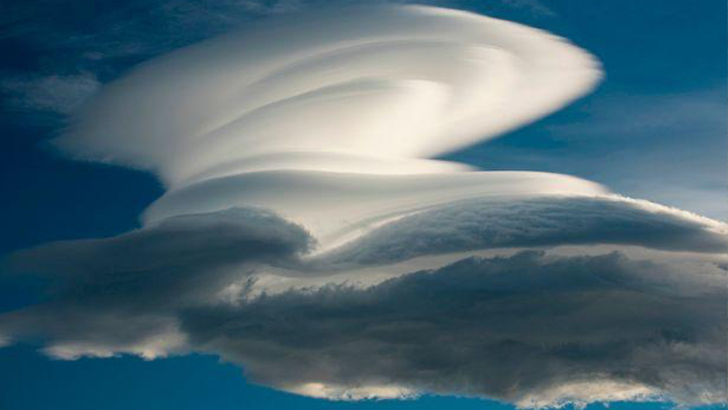
Lens clouds are so familiar due to their saucer shape, but are somewhat rare in occurrence. They’re formed when air travels over mountain tops and sees water vapor condense due to the moist, stable air, which forms these round and flat looking formations. You can actually see them from great distances (this one is 60 miles away), and in the past people have been known to mistake them for UFOs, and you can see why.
Ice Monolith
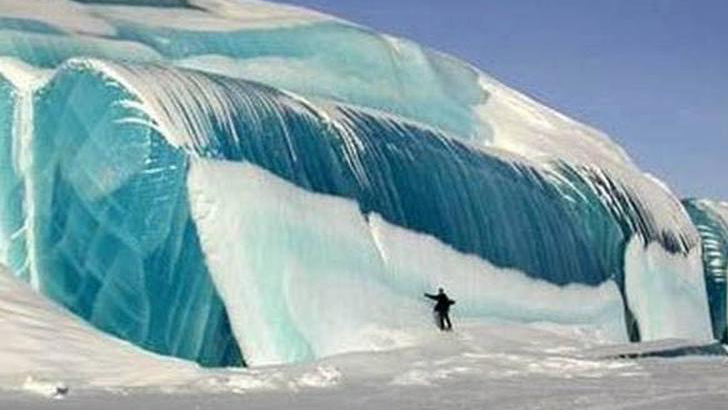
Ice is extremely prevalent, and ultimately important to the existence and continued scientific discoveries made in Antarctica, and time and again we learn some fantastic facts about Earth from its natural features. Here we see an insanely large ice wall, so thick that red light wavelengths aren’t even visible, causing the ice to only reflect back in a blue color. This phenomenon is called “blue ice,” and is formed with compressed ice that still has tiny bubbles.
Black Jaguar
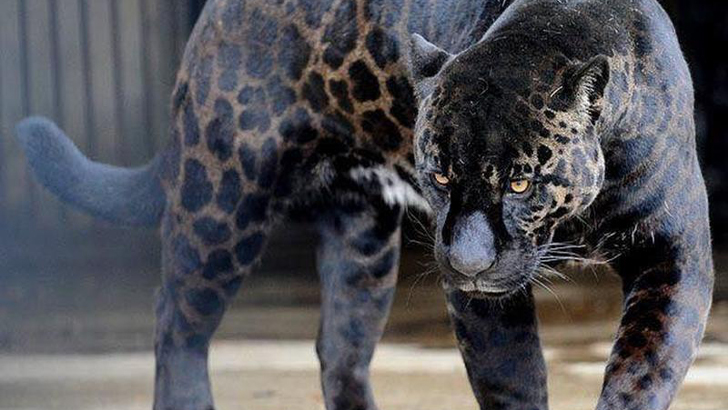
Did you even know that black jaguars existed? These fantastic creatures are some of the most rare in the world, and are only born to jaguar parents who both share the same black, spotted coloration. While they used to be classified as their own species, biologists have settled on the fact they are in fact still jaguars, just different pigmentations. As a member of the big cat family though, that doesn’t make them any less, or more dangerous.
Tree Lightning
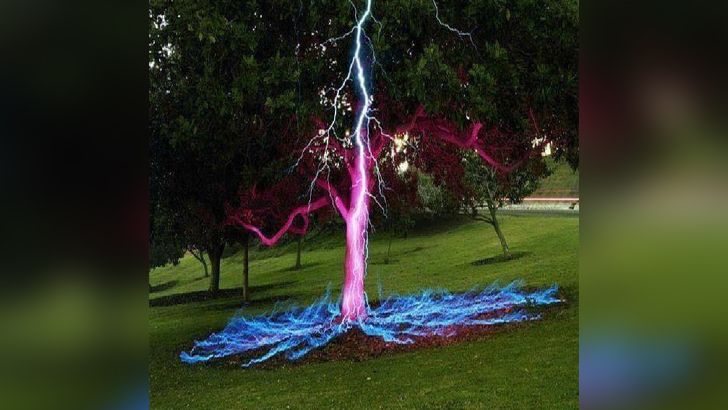
Photographer Darren Pearson was certainly committed to showing the world the sheer power of lightning through his art, so he set up a camera and took an extremely long exposure shot in hopes of capturing lightning striking a tree. And when ultimately successful, the results were astounding. You can clearly see how the lightning moved all the way through the trunk and into the roots, showing different colorations that likely show the different heat and energy intensities flowing through.
Cat Instincts
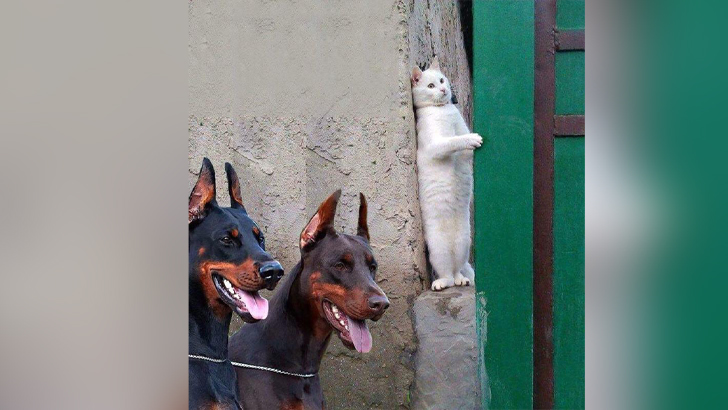
You can’t help but laugh at this image, because the look on this poor white cat’s face says it all. The poor guy is terrified, and rightfully so, because the onlooking Doberman Pinschers aren’t exactly the ones who are willing to give a cat the pass. However, it’s the prowess of the cat to have seen this coming and know exactly how to hide that gives them the upper hand against dogs.
Tasmanian Tiger
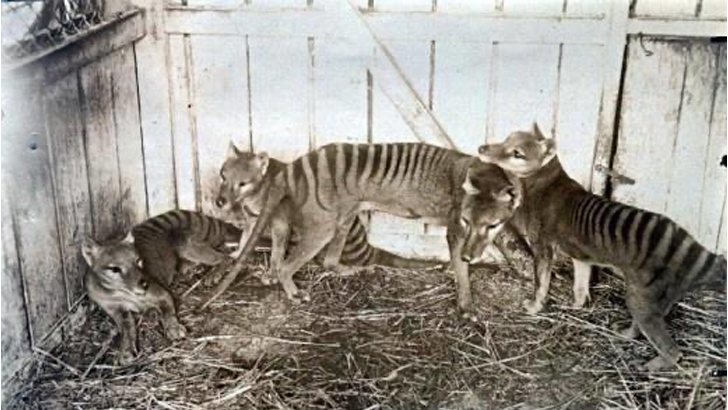
This animal dubbed the Tasmanian tiger, or sometimes the Tasmanian wolf, wasn’t either, actually. Originally called the thylacine, it was the largest carnivorous marsupial in existence up until its extinction in 1910. It was native to Tasmania of course, along with Australia, and New Guinea. It was also a nocturnal animal, so it often didn’t interact with other animals outside of hunting. Sadly, it itself was hunted, along with the common habitat loss and diseases also being factors.
Unlikely Predators
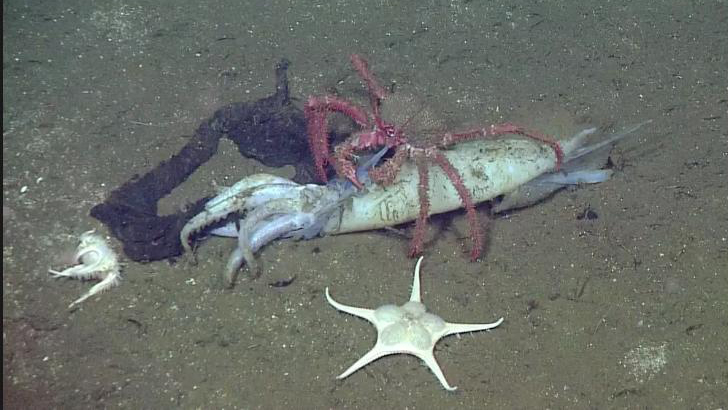
When you think of sea stars and crabs, you don’t often think about them feasting on the carcass of other sea creatures. However, in this photo we see both sea stars along with a crab eating the leftovers of a perished squid, representing another line in the story of life. The idea that nothing goes to waste in the sea is also true, and it goes to show that every animal, no matter how small, needs to eat.
Sea Ice
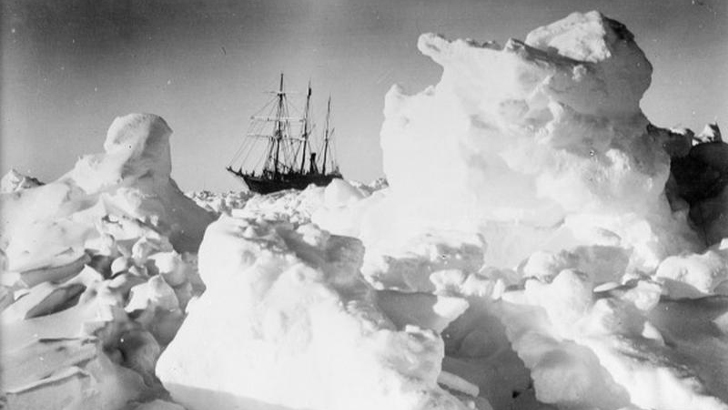
Now for explorers traveling to the arctic in the late 18th and early 19th centuries, travel wasn’t only tougher because the area was largely unexplored, but also because their vessels and technology wasn’t nearly as advanced as it became in later years. Plus, there was literally just more ice! Just ask Sir Ernest Shackleton who’s ship, the Endurance, was stuck in sea ice in 1911 when he was trying to become the first man to the South Pole. He was beaten, but then suffered this setback, staying with the ship for 497 days before reaching safety in life rafts. It ultimately sank in 1915.
Soviet Bears
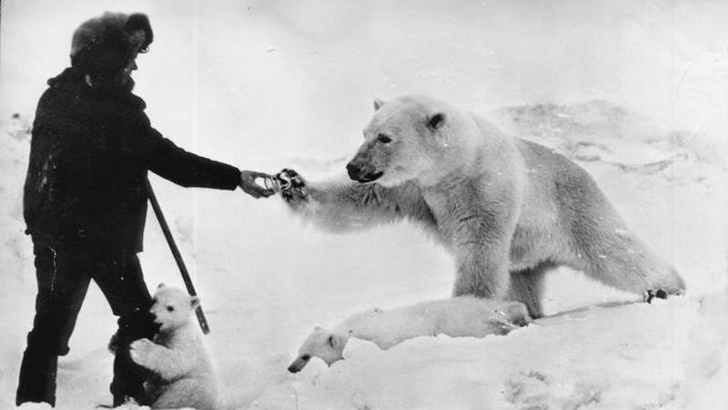
This picture is one of the more touching that involves a man and wild predator, mainly because it doesn’t involve fear-inducing terror or any danger. Pictured here is a soviet soldier in the Chukchi Peninsula, where temps go below -25º and is home to these large bears. But these bears also struggle finding food, so when this mother and her cubs were offered food by the human, they obliged, with the acceptance of what was condensed milk. That was a brave man!
Morning Glory
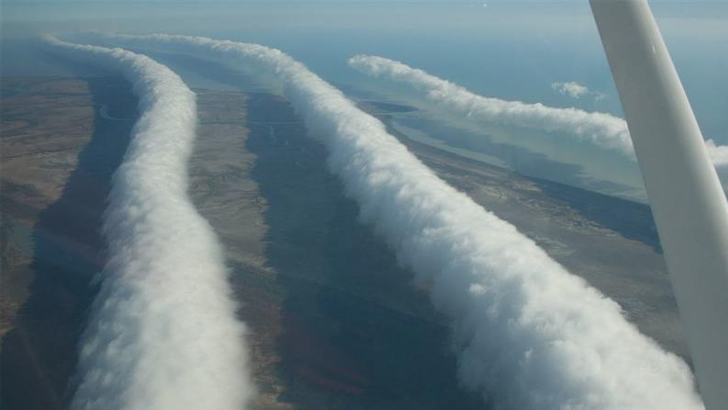
This formation of clouds was captured in Queensland, Australia outside the city of Burketown. Morning Glory clouds, as they are known, is a rare meteorological phenomenon that occurs specifically off the Gulf of Carpathia in northern Australia, and develops in low-level atmospheric conditions. They happen specifically in September through November, and often draw tourist and photographers from all around to study them.
Capital Tornado
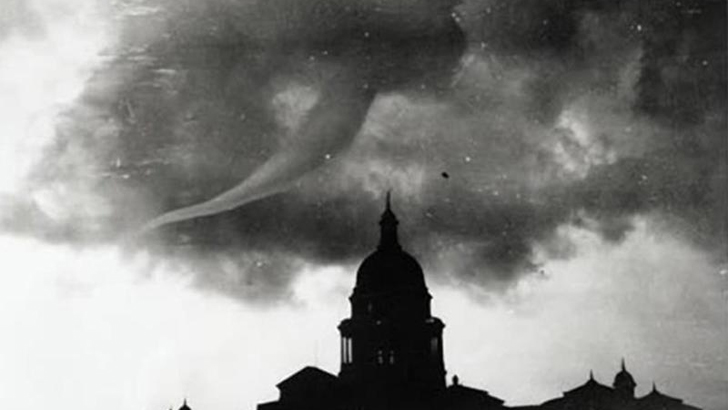
We’ve seen a few different tornado shots in this article, and it seems that the older, more dated photos tend to bring out the most ominous of feelings when seeing these photos. This one here was taken over the state capital in Austin, Texas, which was also the worst tornado in the city’s history. Damage was widespread throughout the town and surrounding areas, and many buildings were pummeled, leaving 13 dead, and many more injured. The tornado in the photo actually split into two, explaining the extensive damage.
Arctic Hare
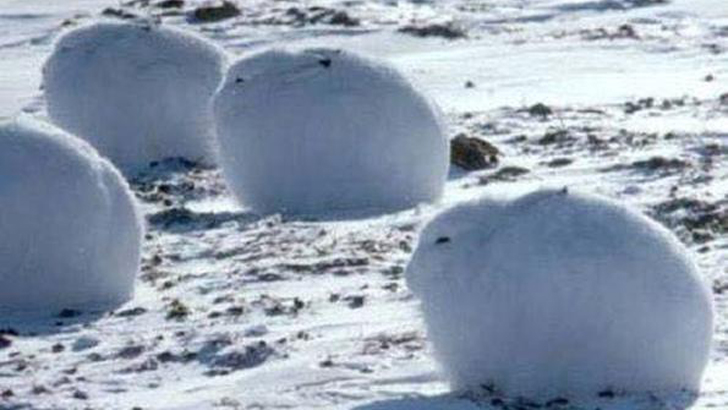
These white little fluff balls are called Arctic hares, or as some people like to call them, polar rabbits. These small creatures are very privy to the freezing cold temps, and have evolved over time to adapt, especially in the summer. In those months, they become brown which helps them evade predators, but in the winter, the white does the same. They have shorter legs, and actually retain more body heat due to their stocky build. They also have padded fur that keeps them safe from cold winds and other harsh weather conditions.
More From Financially+
-


Hollywood’s Shortest Men In Entertainment
-


Most Insane Private Jets On The Planet
-
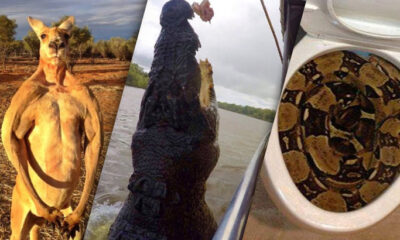

Wild Australian Photos
-


Most Iconic Celeb Role Commitments
-


Celebrity Couple Height Differences
-


Popular Brands That Aren’t American
-
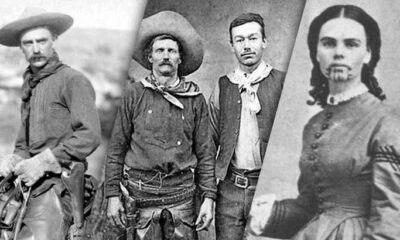

Amazing Wild West Photos
-


Things You Should Never Buy At Walmart
-


The Most Memorable And Surprising Deals Made On Shark Tank
